Content
What breeders and seedling sellers can come up with to attract buyers! One of the latest innovations on the market is the raspberry tree; the Skazka variety has earned particular popularity. The beauty of this plant is truly fabulous: a tall bush with powerful woody shoots, spectacular and fragrant flowering and large, very tasty berries. Variety raspberries The fairy tale has many advantages; this variety also has its own characteristics and some disadvantages.
A description of the Skazka raspberry variety, photos of bushes and berries, as well as reviews of this variety can be found in this article. The rules for growing and caring for tree raspberries are also described here.
Characteristics of Raspberry Fairy Tale
Raspberry Skazka became the second standard variety bred on the basis of the Turus variety. A tree trunk is called a trunk, from the base to the very top. Growing raspberries on a trunk began to be used only a few decades ago. The gardener should understand that the expression “raspberry tree” is somewhat exaggerated; in fact, it is just a powerful bush with thick shoots covered with wood and a decent height.
The standard raspberry Fairy Tale has the following characteristics:
- average ripening time - the berries will be ripe already in mid-summer;
- a powerful bush up to 2-2.5 meters high, which does not need staking due to its thick stems;
- This raspberry is not remontant, but its fruiting period is extended - you can pick fresh berries until the fall;
- the fruits are very beautiful, large, shiny, cone-shaped - the weight of the berries can reach 15 grams;
- Raspberries have an excellent taste, the aroma is very pronounced, and the sugar content is high;
- the fruits are transportable, do not fall off the branches, remain elastic and beautiful for a long time;
- shoots are powerful, thick, not thinning upward, spreading;
- At least four lateral shoots appear on each stem - they create fruit branches;
- The leaves of the Fairy Tale are bright green, glossy, carved;
- the yield is very high, can reach 10 kg from each bush;
- the variety is unpretentious, resistant to diseases and pests;
- the fairy tale can withstand frosts down to -23 degrees, and is well adapted to long-term drought;
- raspberries need pruning, standard bushes must be formed.
A description of the Tale raspberry would be incomplete without mentioning some of the disadvantages of this variety:
- The tale is not suitable for cultivation in the northernmost regions. Thick woody stems cannot be bent to the ground in order to cover them for the winter.
- The high height of the bush makes it difficult to pick berries from the very top.
- The productivity of Skazka raspberries depends very much on growing conditions and the frequency of fertilizing.
- The standard bush constantly needs to be adjusted and shaped by seasonal pruning in both spring and autumn.
All the shortcomings of the Skazka raspberry variety are instantly forgotten just by looking at this picturesque bush. And the taste of the berries is so good that you can try and put more effort into growing them, fertilize and water these raspberries more often in your own garden.
Planting and care
There is no particular difference in growing standard Skazka raspberries: this variety requires the same agrotechnical techniques as any other garden or remontant raspberry. For a good harvest, Skazka raspberries need loose soil, regular watering, generous fertilizing, a lot of sun and warmth.
How to plant Fairy Tale in your garden
Raspberries, which are standard varieties, require a lot of space and light - this is the first rule for planting such a plant. That is why For these raspberries, choose a sunny place protected from the wind, preferably located on a hill.
The soil under Skazka should be loose and nutritious, so if it does not meet these requirements, the composition of the soil will have to be improved. After digging a hole for planting a seedling, fill it with nutritious black soil or add a bucket of humus, coarse sand, wood ash, and peat.
For standard raspberries, good soil breathability is very important, since the upper roots of such a plant must absorb oxygen from the air. Therefore, Skazka is not planted in lowlands, where water will stagnate in spring or after heavy rain. In addition, the soil around the bush is regularly weeded, loosened and removed. weeds.
This raspberry is propagated by cuttings. They need to be planted immediately after purchase. If there are several bushes, a decent interval is maintained between them - 100 cm in a row and at least 180 cm between adjacent rows.
To plant a Fairy Tale seedling, dig a hole or trench, the depth of which will be about 40 cm. Humus or compost is poured into the bottom of the bed, and the upper layers of soil are mixed with ash, peat, and sand.
After planting, raspberries need to be watered regularly until the roots take root and new shoots appear on the stem.
You need to care for standard raspberries constantly, almost all year round. This care consists of the following:
- After the seedlings take root, watering is done less frequently as the soil dries out.
- When new leaves begin to appear, the soil around the Skazka is mulched with peat, sawdust or leaves to better retain moisture.
- When the bush blooms and the berries ripen on it, raspberries especially urgently need watering. During this period, Skazka is watered more often and more abundantly.
- Standard raspberries need to be fed from the beginning of flowering until autumn pruning. For feeding, it is better to use liquid organic matter or mineral complexes dissolved in water.
- After harvesting, in the fall it is necessary to prune the bush. At this stage, two-year-old shoots are cut out at the root and a bush is formed, leaving no more than seven young stems. New replacement shoots should be distributed evenly.
- If the autumn is dry, in October you definitely need to water each Fairy Tale bush abundantly. In addition, the raspberries should be fed: four buckets of cow manure are placed under each plant, and fertilizer is sprinkled with sawdust on top.
- Preparing raspberries for winter involves tying up the still green shoots and bending them lightly to the ground. After this, the associated shoots are fixed at the base of a neighboring bush (this is possible if the Fairy Tale is planted at the correct interval).
To grow a standard variety in Siberia, you need to give preference to the remontant variety Skazka. During autumn pruning, such raspberries are removed at the root, cutting out absolutely all shoots. Then all that remains is to cover the ground to protect the roots of the plant.
In the middle zone, it is convenient to use not the method of bending raspberries (since it is difficult to do due to the thick stems), but covering the tops of the plants with reed mats or non-woven material.
Propagation of standard raspberries
The Skazka variety does not need unnecessary advertising, since the beauty of the bushes and the size of the berries are responsible for its popularity. It is not surprising that an increasing number of gardeners dream of having these raspberries in their own garden. But the standard variety does not reproduce very well.
You can reproduce the Fairy Tale in several ways:
- root cuttings;
- green cuttings - shoots;
- root suckers.
It is best to plant standard raspberries in October, when the seedlings are fully mature.
In special laboratories, similar raspberry varieties are propagated using the microclonal method; this is much cheaper and significantly increases the number of healthy seedlings.
Review
Conclusion
Skazka raspberries can rightfully be called the pride of domestic selection. The raspberry tree is very beautiful in appearance, it decorates gardens and plots, but, in addition, the huge bushes bear fruit beautifully, producing high yields of tasty and beautiful berries.
Feedback from gardeners about this raspberry is mostly positive - the fairy tale is becoming more and more firmly established in all regions of the country. You can learn more about the standard variety from the video:
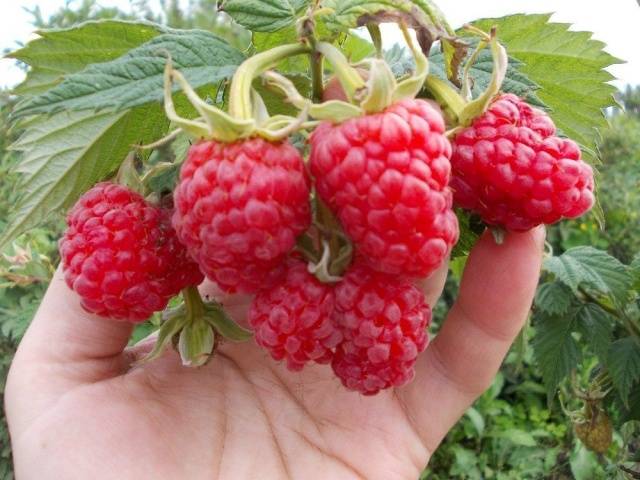
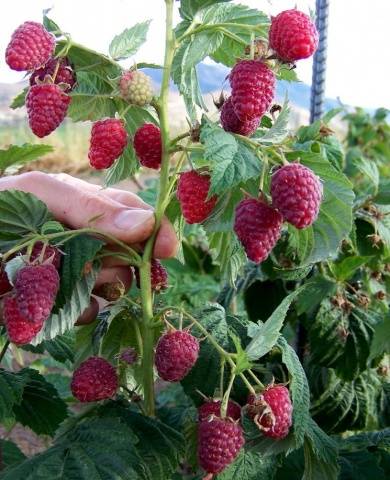
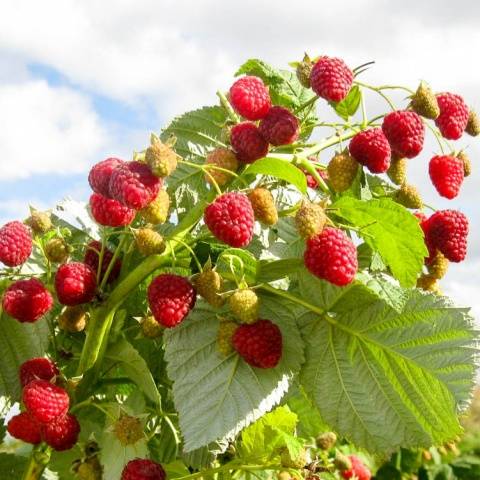
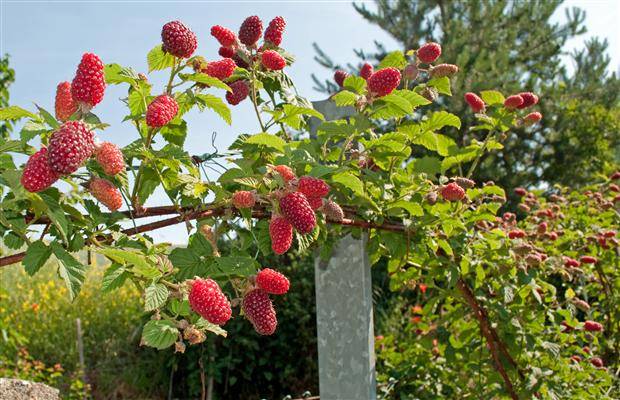
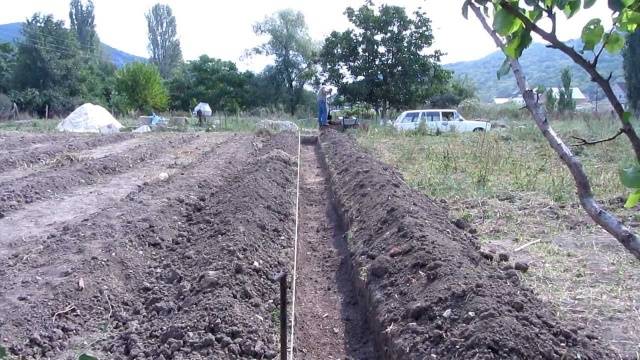
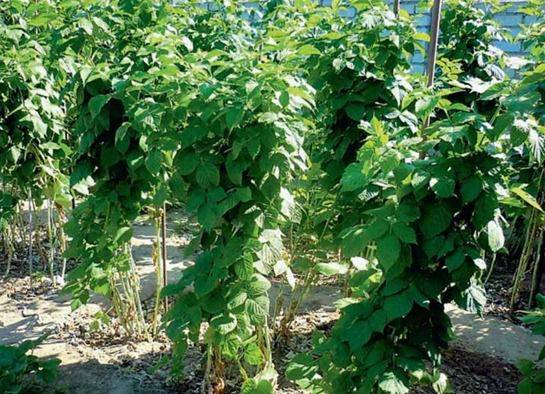
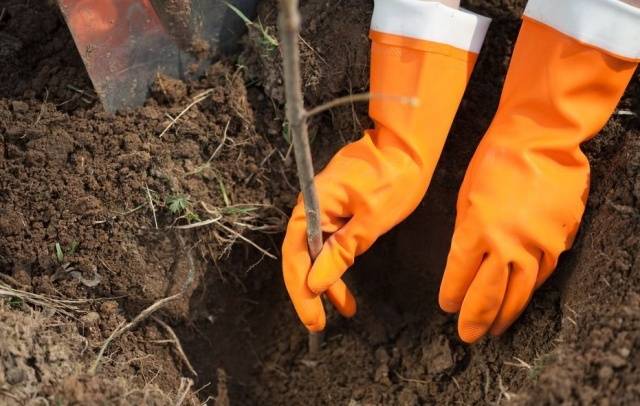
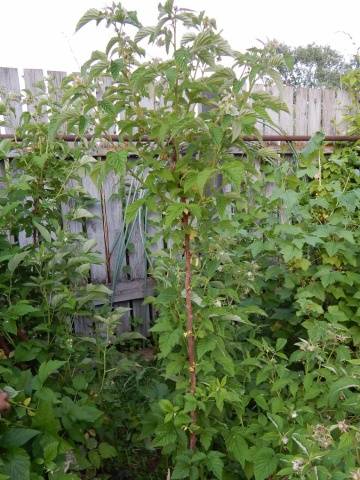
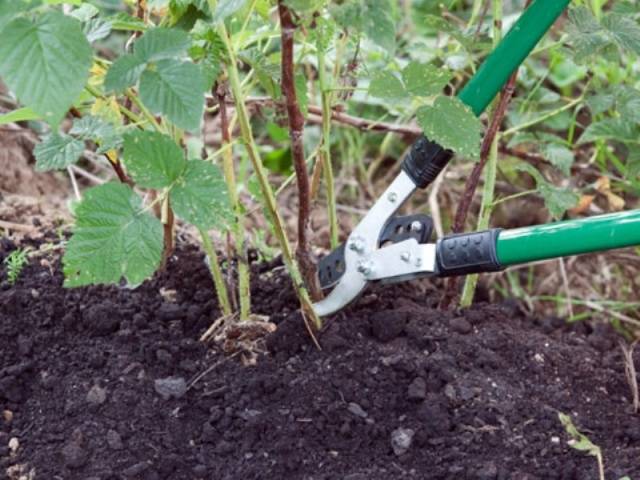
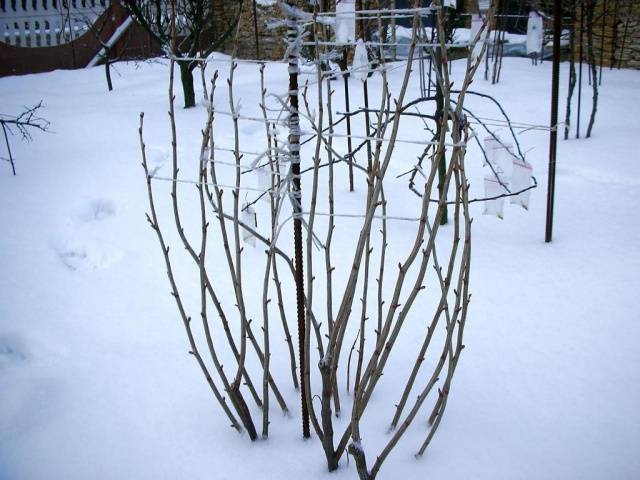
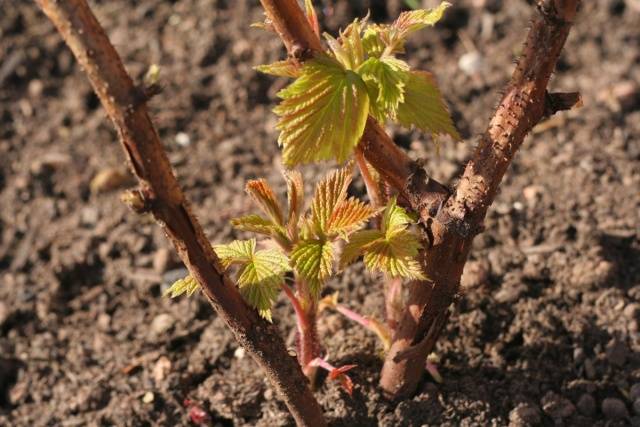
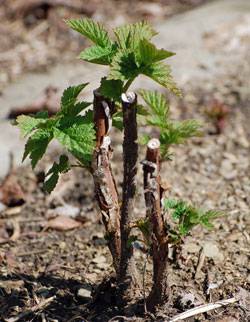
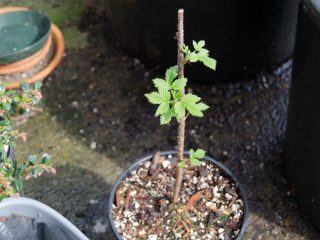
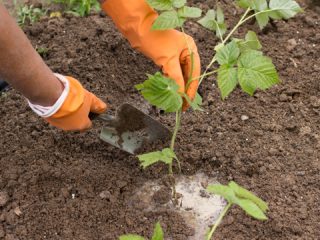

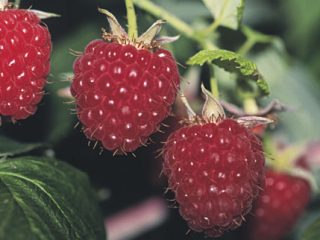
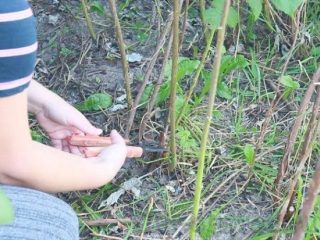


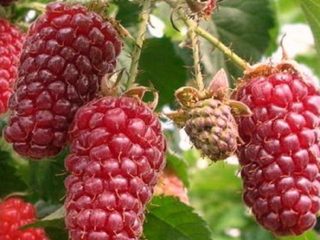
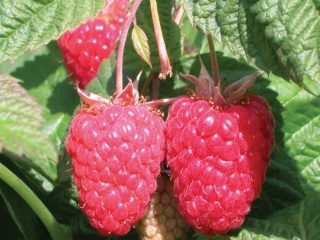
What type of raspberry tree is best to plant in the Ivanovo region.